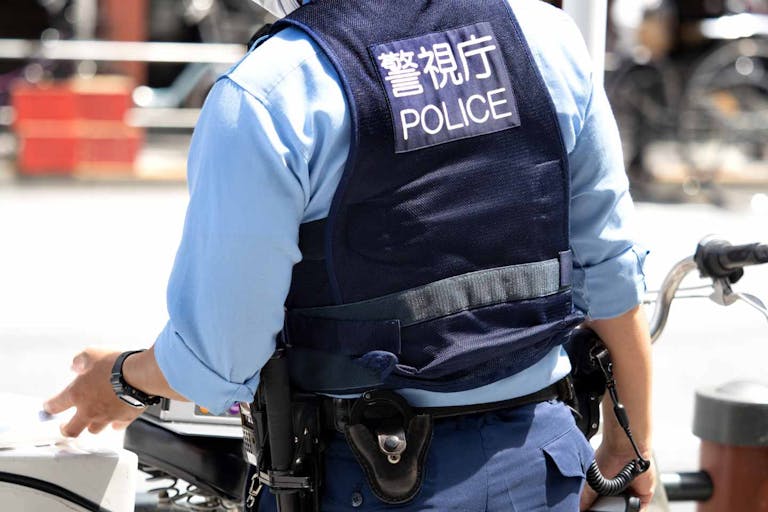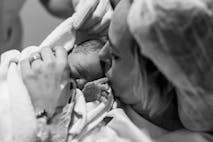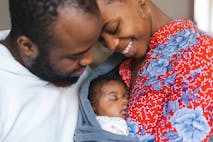
Dismembered infant found in freezer of Tokyo adult entertainment business
Angeline Tan
·
Activism·By Anne Marie Williams, RN, BSN
British Columbia disability advocates fear new care model will hurt, not help, children in need
A firestorm has erupted in British Columbia among families of children with special needs and the organizations that advocate and provide services for them.
The controversy centers on a plan announced in October 2021 by the provincial government’s Ministry of Children and Family Development (MCFD) to create a “community hub model” of “family connection centres” to meet the needs of children with disabilities. The hub model represents a massive overhaul of the Children and Youth with Support Needs (CYSN) framework currently in place. Both parents and advocacy organizations appear in agreement that at present the CYSN framework is in serious need of changes; however, they feel that the proposed solutions are sorely lacking.
A press release from disability advocacy organization Representative for Children and Youth (RCY) cites a lengthy laundry list of the problems with CYSN, including “lengthy and growing wait lists for assessments and diagnoses, lack of access to assessments and quality care in many communities, lack of timely developmental supports to enable young people to thrive, lack of wrap-around support and resources for families who are endeavouring to meet the exceptional needs of their children, discriminatory screening and referral patterns, and inequity in services provided depending on a child’s diagnosis.”
READ: Mom says children with special needs should be treated like people, not puzzles
RCY appreciates the new model’s emphasis on providing services to children who may not yet have an official diagnosis, since diagnoses can take years to secure. And, while qualifying families currently receive a set amount of money to use for services as they see fit, Glen Hoos, spokesperson for Down Syndrome Resource Foundation and father of a child with both autism and Down syndrome, noted that some families of children with special needs may want the overarching coordination of all aspects of care promised by the new model. He agrees with some of the stated goals for the new community hub model, saying, “The desire to make funding equal for all disabilities is positive, as is a desire for kids in all geographic areas to have the same access.”
But, he adds, “[MCFD’s] proposed solution totally misses the mark.”
Article continues below
Dear Reader,
Have you ever wanted to share the miracle of human development with little ones? Live Action is proud to present the "Baby Olivia" board book, which presents the content of Live Action's "Baby Olivia" fetal development video in a fun, new format. It's perfect for helping little minds understand the complex and beautiful process of human development in the womb.
Receive our brand new Baby Olivia board book when you give a one-time gift of $30 or more (or begin a new monthly gift of $15 or more).
A letter dated December 3, 2021, addressed to the MCFD and signed by representatives of 34 British Columbia disability organizations decried “an acute lack of meaningful engagement and collaboration” in the planning phases of the new model. The letter further alleged an ongoing “lack of transparency about the changes” as well as a failure by MCFD to make clear just how the changes represent an improvement over the old system, multiple MCFD-run “information sessions” notwithstanding.
The letter writers insisted that any proposed changes to the old CYSN framework should be based on “flexibility, choice, equity, access, cultural safety, trauma-informed practices, empowerment, and dignity.” And whereas they advocate “for families to have agency and autonomy over the services their children receive and the supports they need,” they consider the new community hubs model, which would take effect in 2025, a one-size-fits-all approach lacking the necessary specialization to meet the needs of children with various disabilities.
Both the letter writers and Representative for Children and Youth also noted the conspicuous lack of mention of increased service providers under the new model. The letter gave specifics on the types of service providers needed, which include “pediatricians, speech-language pathologists, occupational therapists, physical therapists, psychologists,” and “behaviour analysts.” The Representative for Children and Youth press release asked pointedly, “how will even more families be served without more money and resources being put into a system that is already very under-resourced?”
Both the letter and Representative for Children and Youth called on the Ministry of Child and Family Development to develop short-term solutions that address needs ahead of the 2025 roll-out date and to involve relevant stakeholders in any and all decision-making moving forward.
“Like” Live Action News on Facebook for more pro-life news and commentary!
Live Action News is pro-life news and commentary from a pro-life perspective.
Contact editor@liveaction.org for questions, corrections, or if you are seeking permission to reprint any Live Action News content.
Guest Articles: To submit a guest article to Live Action News, email editor@liveaction.org with an attached Word document of 800-1000 words. Please also attach any photos relevant to your submission if applicable. If your submission is accepted for publication, you will be notified within three weeks. Guest articles are not compensated (see our Open License Agreement). Thank you for your interest in Live Action News!

Angeline Tan
·
Activism
Bridget Sielicki
·
Guest Column
Mark Lee Dickson
·
Guest Column
Mark Lee Dickson
·
Guest Column
Mark Lee Dickson
·
Activism
Nancy Flanders
·
Human Interest
Anne Marie Williams, RN, BSN
·
Issues
Anne Marie Williams, RN, BSN
·
Analysis
Anne Marie Williams, RN, BSN
·
Analysis
Anne Marie Williams, RN, BSN
·
Issues
Anne Marie Williams, RN, BSN
·